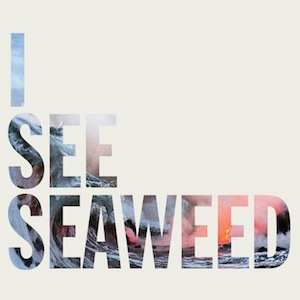Australia must look like a very strange place to the rest of the world right now. Compared to practically every other country on earth, we’re doing brilliantly: low unemployment, economic policies given a ringing endorsement by Nobel laureate Paul Krugman, and an average level of material wealth that makes our compatriots in the UK and the US look like poor cousins. Life is very good here indeed, and yet our public discourse is entirely rancourous. Our Prime Minister has an abysmal approval rating and is constantly harried by lackwits who think the epithet ‘Juliar’ constitutes cutting political commentary. A handful of desperate asylum seekers arriving by boat has been confected into a political nightmare so severe that processing them on an island 4,200 kilometres from Canberra at a cost of $500,000 per person seems like a good idea. Meanwhile, the national press is so far out of touch with reality that it has seriously entertained a debate about whether people earning $250,000 (£171,814) or more per annum are having it tough. To those outside, we must seem particularly myopic: ignorant of our good fortune and unwilling to interrogate whether we deserve the extravagantly good lifestyle we lead.
But then there’s the Drones. On their fifth album proper, I See Seaweed, the Australian five-piece engage directly with the weirdness of the contemporary Australian experience. Here songwriter and lead Drone Gareth Liddiard eviscerates the hypocrisy of Australia’s conservative politicians (on ‘The Grey Leader’), lays the boot into Alan Jones, Andrew Bolt and the other demagogues doing their best to destabilise the current government (on ‘A Moat You Can Stand In’). Even the personal, narrative-based songs are located firmly in terra Australis: ‘They’ll Kill You’ is a paean for an ex-lover who has, like so many others, gone off to Europe in a vain attempt to escape her own flaws; ‘Nine Eyes’ sees Liddiard using Google Street view to observe the socioeconomic damage wrought on his home town of Port Hedland by "cashed-up bogan" mine workers.
The Drones have always traded in this kind of fire-and-brimstone, but it’s never sounded quite this good. One of the most obvious improvements has to do with new full-time member Steve Hesketh, whose piano and keyboard work seems not so much to add startlingly new elements to the band’s songs but to allow them to develop their artier ambitions and perform their more technically difficult material live. (Hesketh also appeared on live DVD A Thousand Mistakes, the aim of which was to demonstrate that the Drones can indeed play the songs that rarely or never make it onto their blistering live setlists.) This personnel addition bodes well for Liddiard’s songs, though, as the additional textural detail Hesketh provides allows the songs to rely less on bludgeoning loud/soft contrasts than in the past.
Perhaps the most significant change in I See Seaweed, though, is a softening of Liddiard’s previously dogmatic misanthropy, which is on display in both the album opener ‘I See Seaweed’ and its closer, ‘Why Write a Letter That You’ll Never Send’. Both cover typically Drones-y territory: the seaweed of the album’s title is detritus left on lawns by rising sea levels, and the final song is a cri de cœur about the fallen state of the world that features pithy and quotable jabs at various public figures and organisations (on the Vatican: "Who’s surprised they went and chose a Nazi for a pope?"). But in both songs, the vitriol that marked the band’s previous forays into similar territory has been supplemented by a kernel of compassion. ‘I See Seaweed’ covers much the same ground as their earlier ‘Oh My’, but rather than goading listeners to get their tubes tied or invest in a 12-gauge, Liddiard juxtaposes a global tragedy ("we’re lockstepping in the certainty that more need to be born") with a personal narrative about the motives behind that same global tragedy ("admit it, she was kinda cute / her panties were your parachute"). ‘Why Write a Letter That You’ll Never Send’ has plenty of zingers, but the structure of the song reveals that they’re equally self-directed: supposedly an email from a friend Liddiard is reading "verbatim" (in rhyming couplets?), its chorus features Liddiard chiding his "friend": "Why write a letter that you’ll never send?" he asks, reminding us that "everybody’s hurting / and their needs are always stark." It may be too late to avert the coming disaster, but we need not revel in the end – I See Seaweed‘s ultimate message is that we can wait out the apocalypse and make the most of what little time remains with decency, tenderness and humour.


